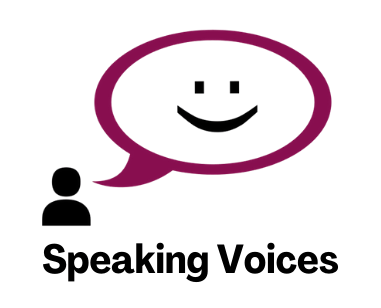Authenticity is essentially the alignment of words with actions. Having verbal declarations is inadequate, they must be supported by the corresponding behaviours. Inconsistencies arise when one claims to be honest but they shy away from difficult conversations. Authenticity requires an intricate blend of expressing genuine intentions and maintaining them. It gives transparency, a sense of honesty and being trustworthy.
The Power of Language and Actions
Language is powerful. The words we choose can inspire, comfort, or even hurt. But words alone are not enough. You can talk endlessly about your values, but if your actions don’t align, they become empty promises. Imagine someone who always talks about kindness but is quick to judge others; there’s a clear mismatch. Being genuine means that your language and actions flow together seamlessly. If you express empathy, then show it through your actions. If you say you’ll be there for someone, follow through. Authenticity isn’t just about what you say; it’s about proving it with your behaviour. The old saying, “Actions speak louder than words,” is something I wholeheartedly believe in.
Speaking from the Heart
To be genuine, you need to speak from the heart. This doesn’t mean being impulsive or overly dramatic, but rather being honest and open. It’s about allowing yourself to be vulnerable when necessary. Too often, we hide behind polite phrases or tell people what they want to hear, rather than what we truly feel.
For example, if someone asks how you’re doing and you’re struggling, it’s okay to say, “I’ve been better.” You don’t have to pour out all your troubles, but you don’t need to pretend everything is perfect either. People appreciate honesty, it’s what helps build trust and meaningful connections.
Consistency in Your Actions
Saying you’ll do something and actually doing it are two different things. The world is full of people who promise but don’t deliver. Being genuine means you don’t just talk the talk, you have to walk the walk as well. If you commit to something, whether it’s helping a friend or working on a project, follow through.
Consistency in your actions reinforces your authenticity. People will come to know you as someone who stands by their word. And the more you practice this, the easier it becomes to stay true to yourself. Authenticity isn’t something that happens overnight; it’s a habit you build over time.
Avoiding Double Standards
One of the biggest challenges in being authentic is avoiding double standards. It’s easy to fall into the trap of holding others to higher standards than you hold yourself. For instance, if you expect honesty from others but aren’t willing to be truthful yourself, it undermines your integrity. To be truly genuine, treat others the way you’d want to be treated. Be honest, but also be kind. And remember, being authentic doesn’t mean you have to share every thought or opinion you have. It’s about being true to your core values and being consistent in how you express them. It sounds simple, but some people do lack the basics of understanding their core values.
Embracing Vulnerability
To be genuine is to embrace vulnerability. It means being open, even when it feels uncomfortable. It’s about being okay with not being perfect and acknowledging your flaws. When you’re authentic, you give others permission to be real too. It creates an environment where people can connect on a deeper level.
Being vulnerable isn’t about oversharing or making yourself the centre of attention. It’s about being honest about your experiences and challenges. It’s admitting when you don’t have all the answers or when you’ve made a mistake. This level of openness builds trust, both in personal and professional relationships.
Practical Tips for Being More Genuine
- Be Honest, Even When It’s Hard: If something doesn’t sit right with you, express it politely but truthfully. It’s better than bottling up your feelings.
- Listen More, Speak Less: Being genuine means valuing others’ perspectives. Instead of thinking about what you’ll say next, focus on truly understanding what the other person is saying.
- Follow Through on Your Promises: Whether it’s a work commitment or a promise to a friend, make sure you deliver on what you say you’ll do.
- Own Your Mistakes: Admitting when you’re wrong is a sign of strength, not weakness. It shows that you value truth over ego.
- Be Kind to Yourself: Authenticity also means being genuine with yourself. Recognise when you’re pushing yourself too hard and take the time to rest and recharge.
The Benefits of Being Authentic
When you’re genuine, you attract like-minded people who appreciate you for who you are. Authenticity promotes trust and deepens relationships. It allows you to live without the burden of pretending, which is both exhausting and unfulfilling, trust me I’ve been there. The more you embrace your true self, the more confident and comfortable you become in your own skin. Being genuine isn’t about perfection, it’s about showing up as you are, with your strengths and your flaws. It’s about being open to growth, willing to learn, and ready to connect with others on a real level.
—————————————————
If you’re looking to refine your communication skills and become a more confident speaker, visit my website for more tips on how to express yourself clearly and genuinely.
Thank you for reading this article, if you want to support me, consider leaving a tip to help me create more content like this. Every tip helps me enhance my blog and bring you more insights, tips, and stories! https://paypal.me/emilylee1329

